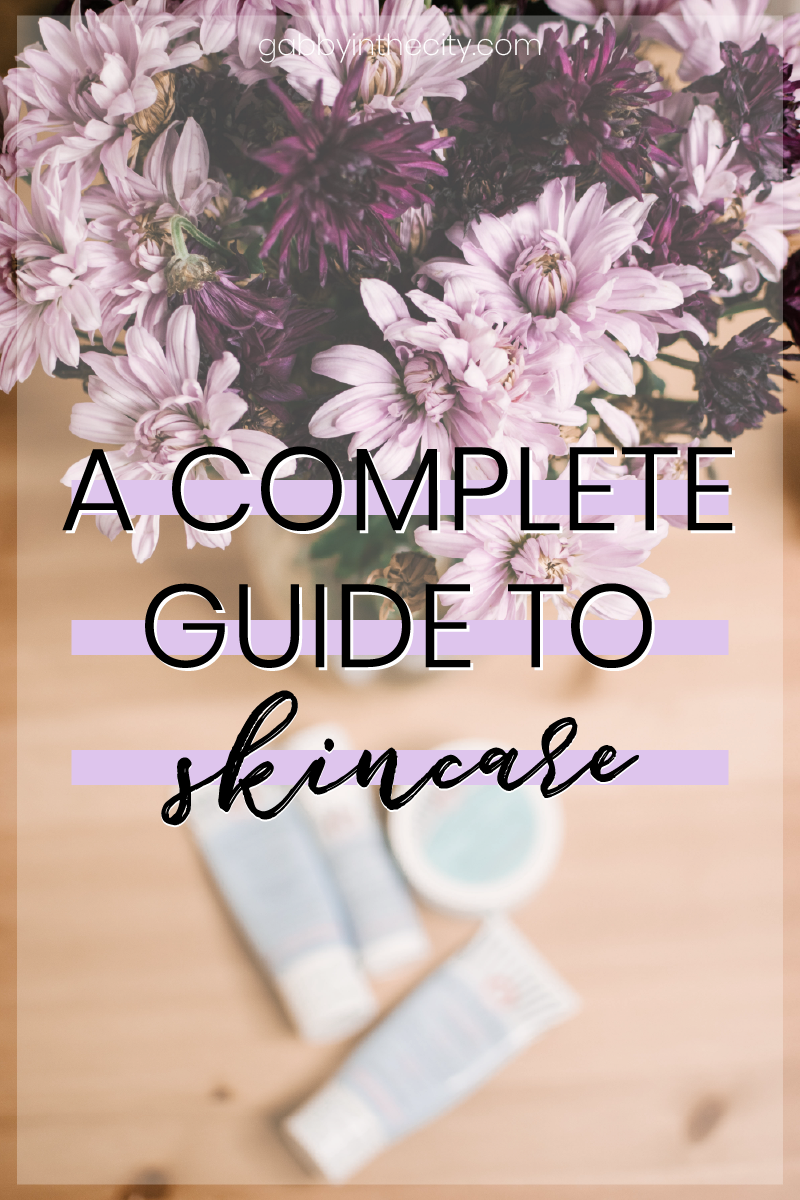College is hard, and sometimes it can even get to be unbearable if you picked up a lot of credit hours at the beginning of the semester. My best semesters weren’t necessarily where I had the easiest classes or even the lowest amount of credit hours. They were the ones when I had an organized and well thought out plan of action and good study habits. I wasn’t rewatching all of Gossip Girl for the 3rd time or waiting until the last minute to write 10 page research papers.

The semesters that I had stellar grades began after I developed a study plan that worked for me. So, I figured that this would be a popular post to bring to the blog and would have the potential to help people. Will this exact schedule work for you? Maybe not. This is great for science majors who need to study a lot of conceptual ideas. It’s likely not the best for heavy paper writing courses or even courses in the humanities. I’m not an expert in these classes because I really haven’t had to take many of them.
So sit back and get your planners ready, while I tell you all about my study plans and how I make pretty bomb grades in my science and math courses.
Before Class: Reading Effectively
I know it sucks, and really no one on earth wants to do it. Reading a science textbook may be the world’s most tedious job, but it will seriously benefit you in the long run for test time. Simply just reading the book without taking the appropriate measures will not do much for you either. This was my mistake in my first chemistry course. If you simply read the book without being fully focused and watching for key themes, there is a high chance that you won’t actually retain anything that you read. It can take hours to read some sections and let’s not waste any of our very precious time, mindlessly going through the motions.
In order to make sure that you’re getting the most out of your readings: take notes while reading-summarize big themes and important details.
I have used two different note taking methods that have worked equally well in the past depending on my personal preference at the time more than anything. The first set up involved colored post it notes that I would write small notes about important conceptual details and leave them throughout my textbook. This worked well when I had a physical textbook for my class {which I honestly prefer}.
Now, I spend a lot more time reading in places other than a dorm room and carrying around a textbook is not in the plan. If you are big into e-books, I would still recommend writing down your notes in an outline format in a notebook somewhere. I also use this to review after class which will be discussed later on. Here’s an example of some of my notes:
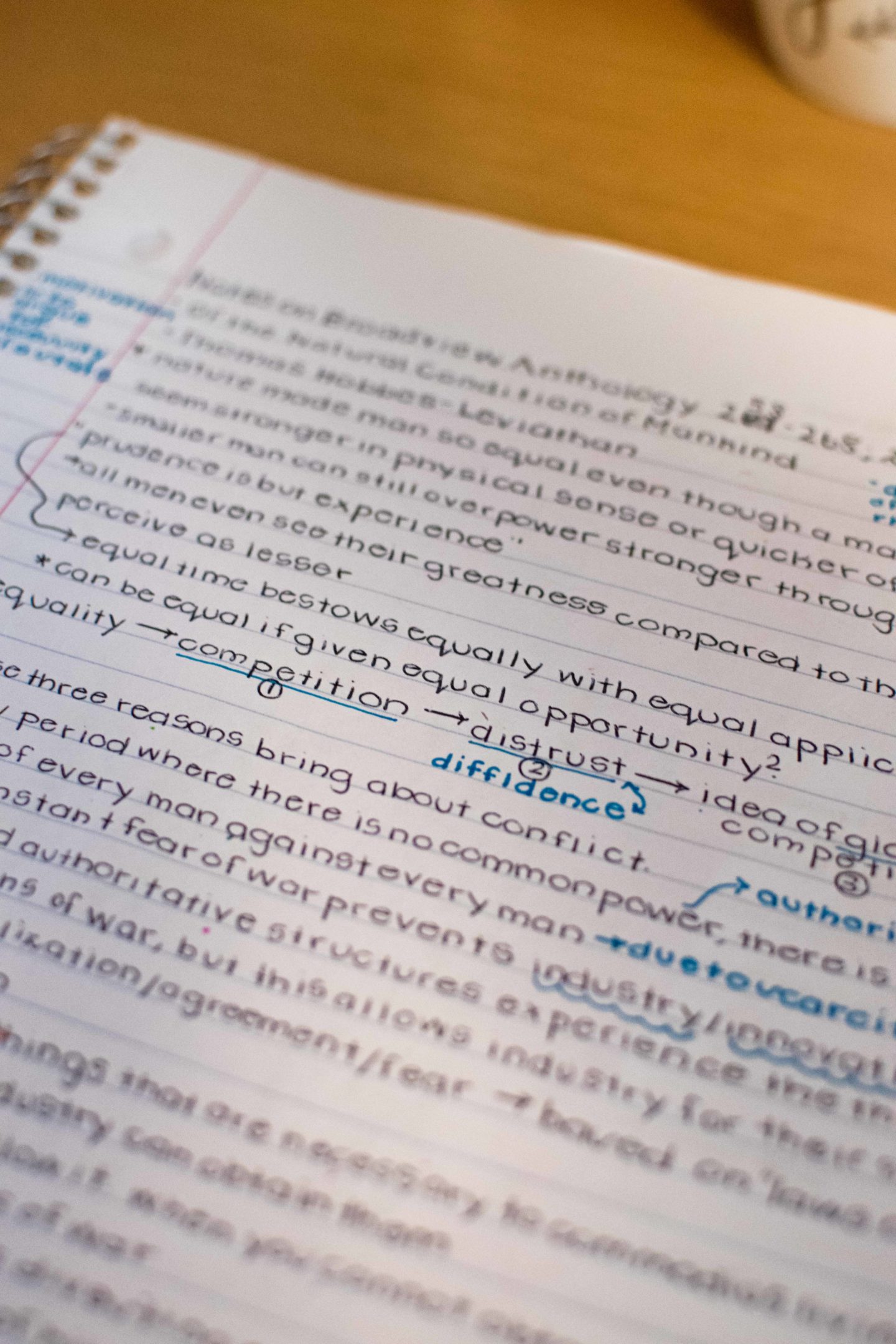
During Class: My Note Taking Method
Most professors will now expect you to have some idea of what material will be discussed each lecture and you can turn to your syllabus for this: more about how to use the syllabus to your advantage *here* and *here*. One thing that I want to add to my study plan is reviewing the notes before class if possible because it’s much easier to follow lecture when you already know what to expect. And, you can figure out what you don’t understand {even if that’s everything}, and be ready to ask questions!
I personally am not a fan of printing out slides for many reasons. It’s primarily because I learn a lot of information simply from writing it multiple times, but I’m also not trying run through my printing money in the first month of class. However, some professors speak unbelievably fast so I would recommend printing out slides multiple to a page and in the notes version so that you can make small comments to yourself in class.
I like to have a 3 subject notebook to share among all the classes I have in a day and then a binder for handouts or to hold my printed slides. This is also a great place for stickers to make school supplies a little less boring.
After Class: Reviewing Your Notes
I think your after-class routine is the killer for so many people, especially for Thursday classes. My original study plan had no after class plan until right before the exam, so if I had unanswered questions, they typically wouldn’t be unearthed until 3 days before the exam. This is actually kind of terrible and makes it much harder in the long run. I recommend finding your professor’s office hours and TA’s extra help sessions and scheduling them into your week.
This will reinforce the idea that it’s probably a good idea to rework or review the problems and material that you covered the day or two before. I try to aim for doing homework the same day of the class and reviewing the material the next day. Reinforcing materials is your best friend! This also helps you stay ahead of the curve and prevents getting behind which [trust me] is honestly the worst predicament you can get yourself into and I know this from experience.
My Plan
My After Class Plan is trifold: review and color code notes, attend extra help sessions, and group study with friends. It’s an incredibly good idea to go over your notes with some of my favorite *pens* and underline/highlight key concepts that were stressed in class and that you can identify as important themes from practice problems.
Also, work in the optional reinforcement that most classes will offer. Here is where you need to determine what is helpful to you. For example, review sessions led by TA are 100% useless for me because I just don’t find them helpful. However, some of my friends absolutely love using this as a resource. I, however, loved working problems with people from my classes and teaching others concepts and having them taught to me really helped reinforce the material.
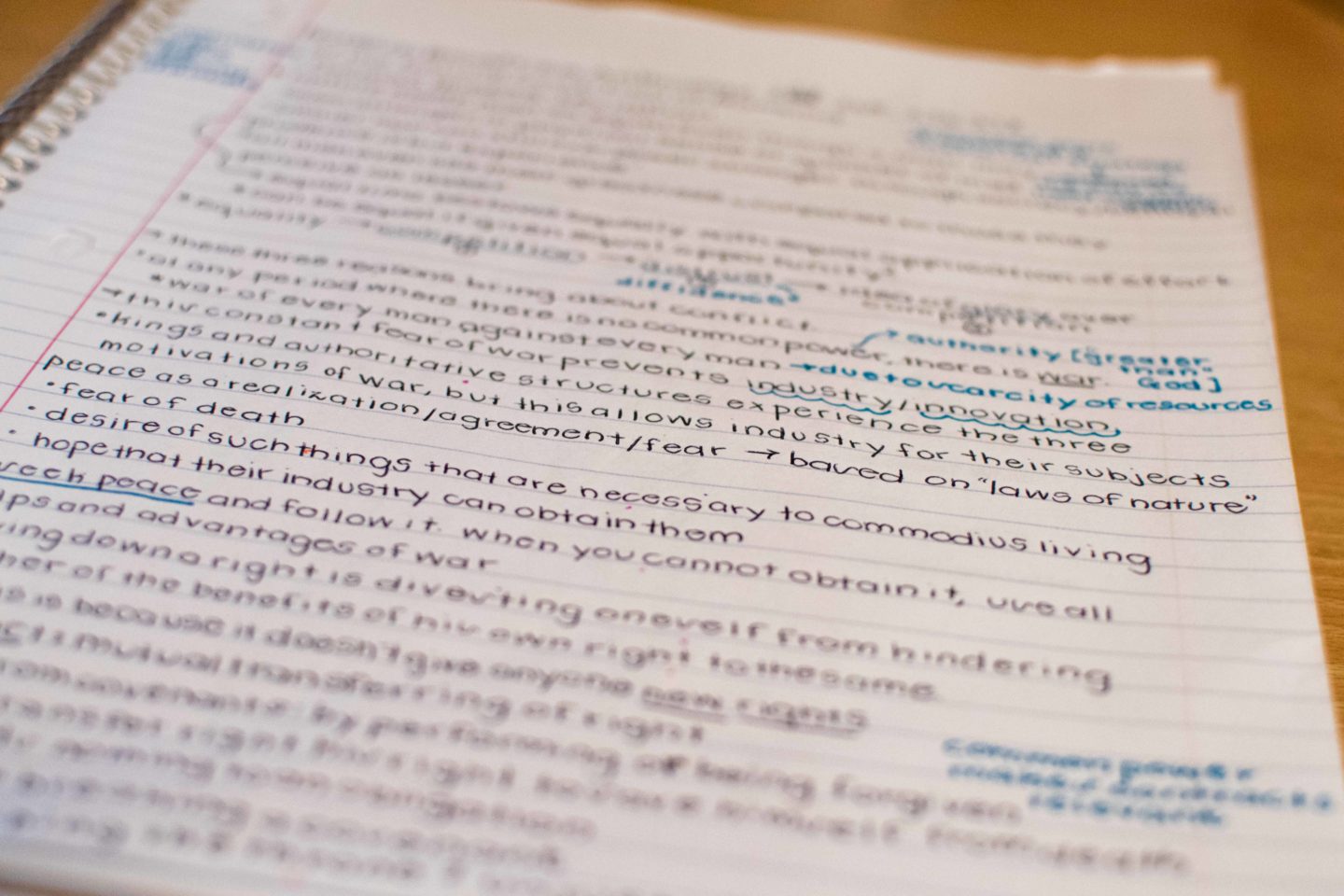
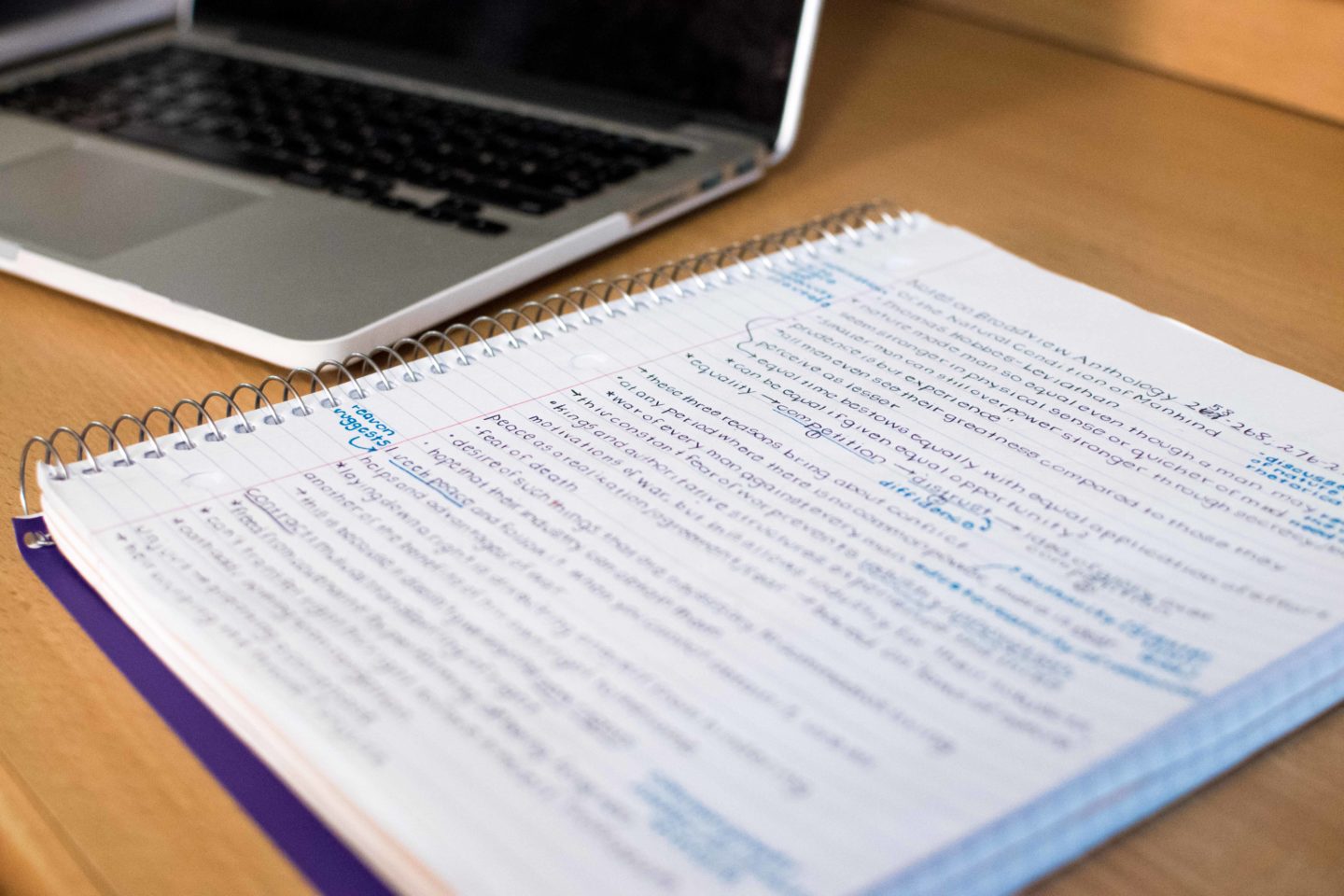
Test Prep: Colorful Review Notes
I think one of the most commented on part of my academic plan has been my colorful review notes that I make for each Midterm Exam. These pretty study notes can summarize an entire mid-term’s worth of information. Pulling out important test material is an awesome skill to start building as well. I start working on these about 3-4 days before an exam. I take key concepts or ideas and create diagrams and models that help me remember the material.
Some professors give out or mention key goals of each class period and I will use as a starting point for organizing the course material in an organized and coherent manner. The color is great for memory and makes it a little bit more fun to review. My classmates have even begged me to make some for them, which honestly would take all the greatness out of it because making them and writing the information is 60% of the appeal of making them!
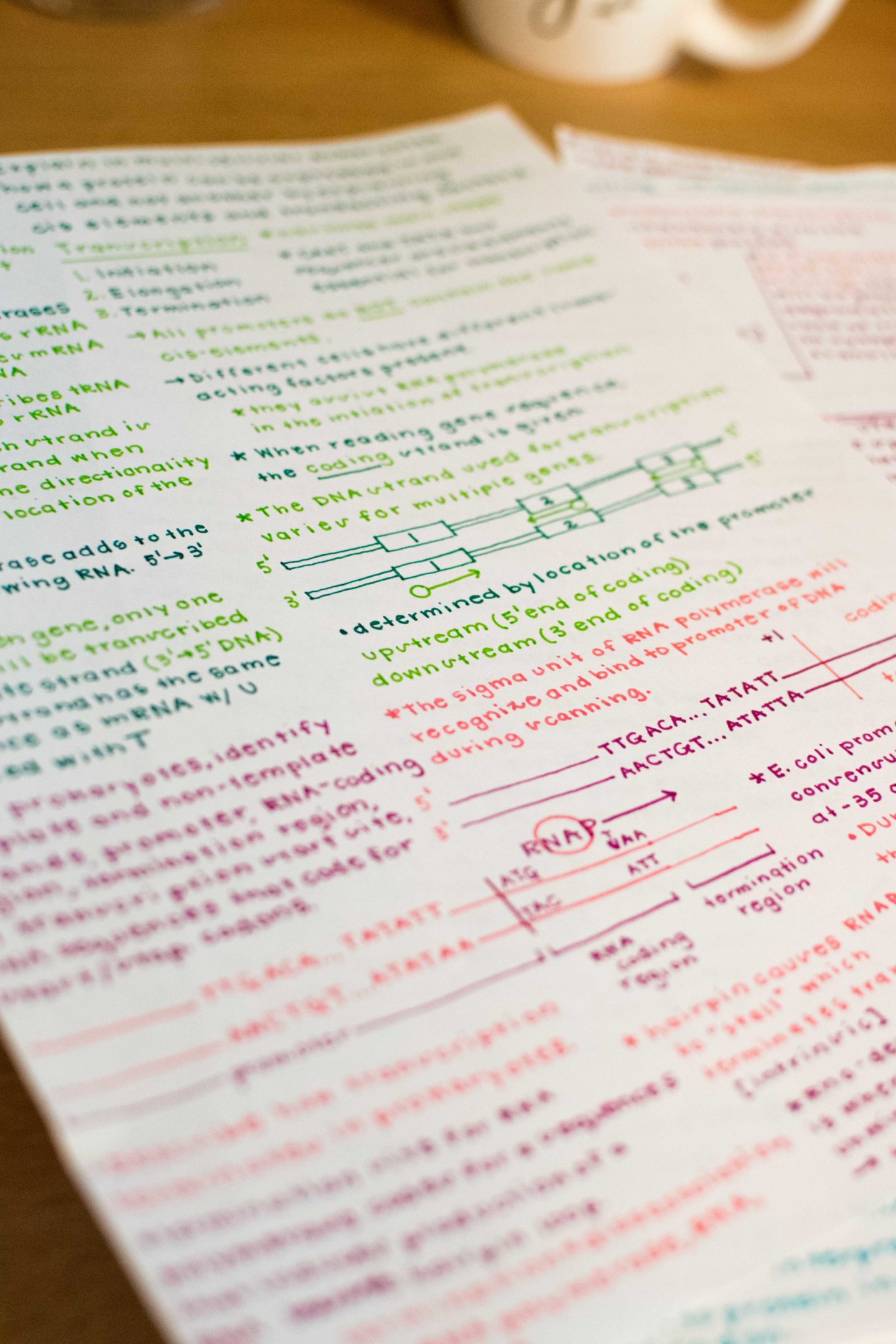
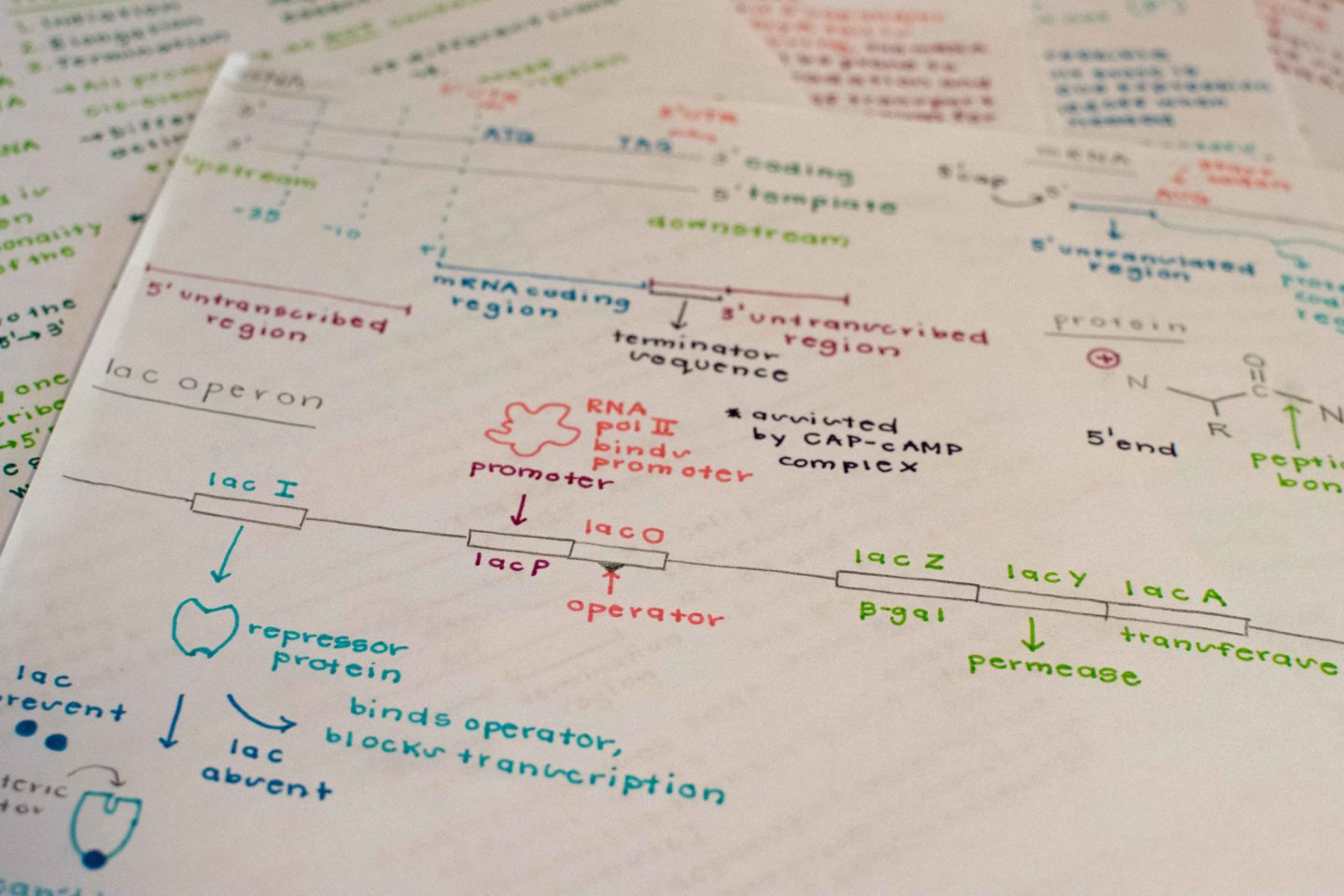
I typically make them on 8.5×11 unlined computer paper, but I also loved to make colorful note cards for my physics courses. Each note card would include important equations and concepts from each lecture on a larger 5×7 note card! These are both great ways to help you prepare for exam time. Pair this with plenty of practice problems and the practice exams and you’ll be in great shape to crush that exam. Seriously, it won’t have anything on ya.
Night Before Test: Step Back and Rest
The night before an exam is usually when I read over my review notes/cards and work the practice exam. I may also attend a review session led by a TA and/or professor to make sure that I didn’t miss any key concepts. It’s best to work on a different class {or in my case write new posts for the blog} and really try to focus on something else that you need to do. Avoiding stress at all costs is key!
I like to have a great dinner, followed by 7-8 hours of sleep, and a healthy and filling breakfast! When I can have a calm, peaceful, and relaxed morning on test day, it’s so much better for me! I have an entire post on rocking test day *here*. Avoid stress and waking up on time the next day while making sure to get plenty of sleep is the best way to go!
College is all about finding what works for you. I’m sure certain needs but you at a school, a certain major can open doors to certain careers, and class times after 8 am make sure you actually make it there. This also goes for your study plan; what works for me might not be best for you. There are some general principles that everyone should abide by and I think I outlined some good ones here! I hope this post was helpful. Let me know in the comments down below how and where you study and what’s been most productive for you!
keep on keepin’ on,




